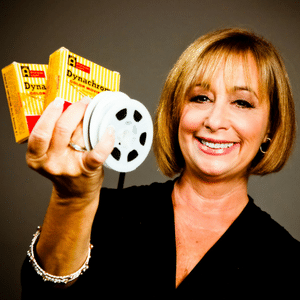 Increasingly, I find myself referencing the on line website Urban Dictionary, a user-contributed wiki written by people to define the world. There have been 7,102,294 definitions added since it was founded in 1999. I like it for a couple of reasons. First, it helps me to understand not only urban slang, but also the mindset of “generation next “ as I call them: what they are interested in and how they perceive and describe the world. It also gives me insight as to how I can most effectively market to them. Since the movie film products I sell are considered retro, that can have a positive or a negative meaning, depending on whom you ask. I like reading the word of the day, trends, the thesaurus, and especially engaging my own barometer in reaction to some of the shocking stuff being defined (omg). As I lift my jaw off the floor as I sometimes do, I realize that I’m not has hip or cool as I like to think I am! (lol)
Increasingly, I find myself referencing the on line website Urban Dictionary, a user-contributed wiki written by people to define the world. There have been 7,102,294 definitions added since it was founded in 1999. I like it for a couple of reasons. First, it helps me to understand not only urban slang, but also the mindset of “generation next “ as I call them: what they are interested in and how they perceive and describe the world. It also gives me insight as to how I can most effectively market to them. Since the movie film products I sell are considered retro, that can have a positive or a negative meaning, depending on whom you ask. I like reading the word of the day, trends, the thesaurus, and especially engaging my own barometer in reaction to some of the shocking stuff being defined (omg). As I lift my jaw off the floor as I sometimes do, I realize that I’m not has hip or cool as I like to think I am! (lol)
Urban dictionary has given me words for things that I have experienced myself but didn’t know what to call it. For example, when the younger generation in a family adopts and purchases new technology product at a fast rate, old versions (that are in working order but are not up to current standards) are given to their parents. This is called a HAND ME UP. Who knew?
Take the word foodie for example, which seems to be everywhere.
One definition: A foodie (also spelled foody) “ is a dumbed-down term used by corporate marketing forces to infantilize and increase consumerism in an increasingly simple-minded American magazine reading audience”. Another contributor describes it as “someone who loves everything there is to know or learn about food”. A third, “a politically correct term for fat kid”, and on and on.
So what does all this have to do with saving memories?
The under 30 crowd is the first generation who have grown up in a predominately digital culture. This obviously has tremendous influence on not only their consumer behavior, but how they capture, use and share the media they create. It is very much in the moment and is posted on social media, YouTube, etc. as soon as it is created. If they don’t like it, they delete it. There is so much content being created every day that we are never for want to see something new or cool.
I suspected that the word preservation or archiving was not even on the radar of the under 30 crowd, so I thought I would go to Urban Dictionary and see if I was right. The only thing that came up for preservation was an entry from a guy who talked about being hired to work on a 100-year-old historic house and how difficult it was to get off all the old paint. But the irony is in the post he also mentions hearing a tour guide in the background while he was working, talk about the history of the property. I am quite sure he does not make the connection however between preserving the property and the preservation value of what the docent is telling visitors, and that it the point.
Archiving. Same thing. Only one entry that defines archiving is when you are in deep thought about things and situations and contemplating what your next plan of action is for handling it. “While I was walking past her block, I saw my friend archiving real deep about what had happened on yesterday. I know her brain has got to be burning right about now.”
As a person who has devoted their career to the archiving and preservation of home movies shot on film, I have had a growing concern for a long time now about all the digital images that are being shot and unloaded to the internet from an archivists mindset. The mindset that film is the only proven archival medium. That when stored properly you can “set it and forget it” for 100 years. This has been proven. However there are obvious cultural implications to our digital world that include we delete what we don’t like; that we are capturing media on multiple devices; that we misplace media cards; that we do not do adequate back up; that our hard drives can fail if we do not start them every now and then; and we almost always loose something in migration. This will in fact create a black hole in how we will be remembered a hundred years from now. That we know. Much will not survive long term, and the cost of having access to our pixels that are just ones and zeros can only be fully understood when looked at on an excel spreadsheet that calculates and itemizes the cost long-term digital preservation.
While is it obvious that the Hipsters and Generation-Next are not thinking about archiving or preservation, I checked the word memories. One entry,
“Reflections of how one perceives how things really happened”, or another, “ Personal or collective revisions” . Sadly, used in a sentence as “I have very few fond memories.” Then, Memory: “A thought that comes back to haunt you; a thought from your past that keeps affecting your future”. “I hope when I get old my memory fails me. That way I’ll have nothing to regret”. Ouch.
Legacy, Curator. Sadly, more of the same. The question is, what can we do about it to shift this mindset before it’s too late?
While I am not suggesting that Urban Dictionary is by any means the definitive source for understanding how the younger generations thinks (in fact a lot of it is silly garbage) I do think it speaks to a collective consciousness and values of a generation who is not thinking about preserving memories into the future. While we can speculate perhaps that for some it has to do with too much pain in the present, that is a different conversation altogether.
The best we can do as APPO members and photo organizers is continue to lead by example. Work with their parents and grandparents to be curators of their family legacy. Create the photo books, slide shows and home movie montages that capture our 20 and 30 year olds engaging in joyful activity. Engage them by getting them to do the editing, after effects, uploading and sharing. Give these things as gifts to children, teens and young adults in your life and encourage your clients to do the same. In fact last week, a young man we know (about 27) told us that while it was a lot of work to find an old photo of his grandfather, scan it, have an enlargement printed, go and get it framed, it was SO rewarding to see the joy it brought on Fathers Day. The reaction he got was totally unexpected, and, he felt an enormous sense of pride that the framed photo is now hung on the wall in grandfathers home.
Oh, and by the way, while there was no word for organizer in Urban Dictionary, there was a word entered as EOTM: Entrepreneurs On The Move, an Organizer, Promoter, Leader!
 Rhonda Vigeant is the owner of Pro8mmPro8mm in Burbank,CA, a company that specializes in the professional use of Super 8 film for production and archiving. She is the author of Get “REEL” About Your Home Movie Legacy…. Before It’s Too Late! and host of a weekly radio show The Home Movie Legacy Project .
Rhonda Vigeant is the owner of Pro8mmPro8mm in Burbank,CA, a company that specializes in the professional use of Super 8 film for production and archiving. She is the author of Get “REEL” About Your Home Movie Legacy…. Before It’s Too Late! and host of a weekly radio show The Home Movie Legacy Project .


Thanks Rhonda, great look at what the next generation is thinking. My observation is that it starts to change as they have children, or as the young man you ended with, see the impact a printed photo can have on someone they love.
I agree Philip and think you for your comment!